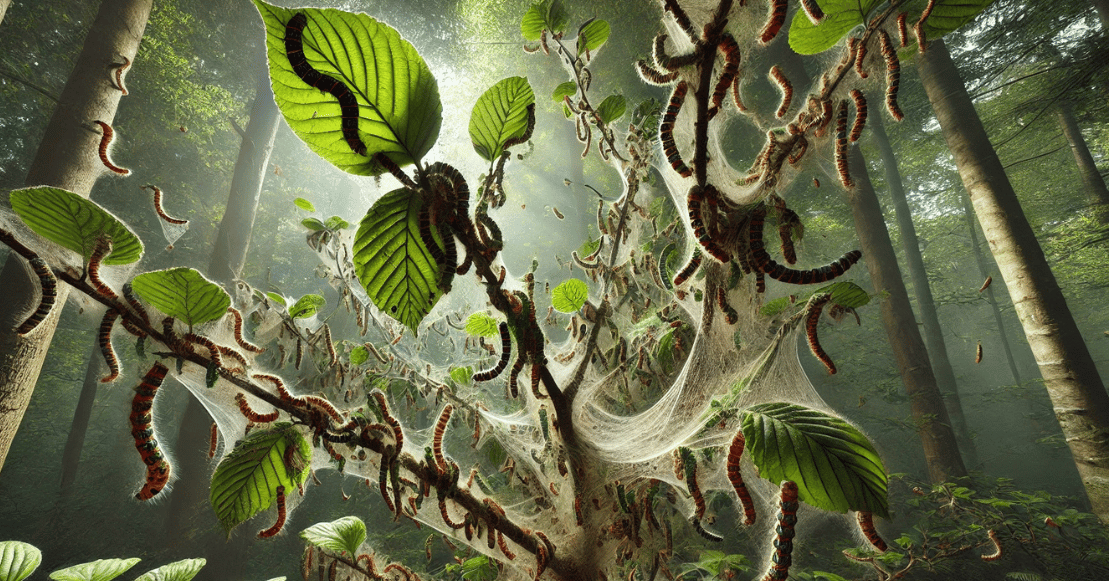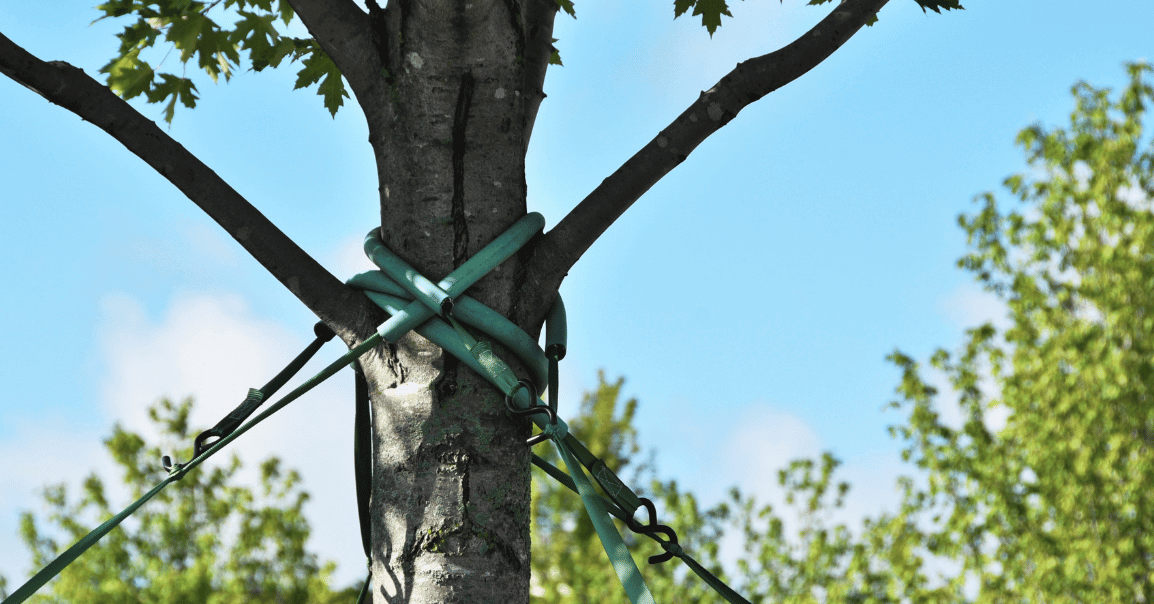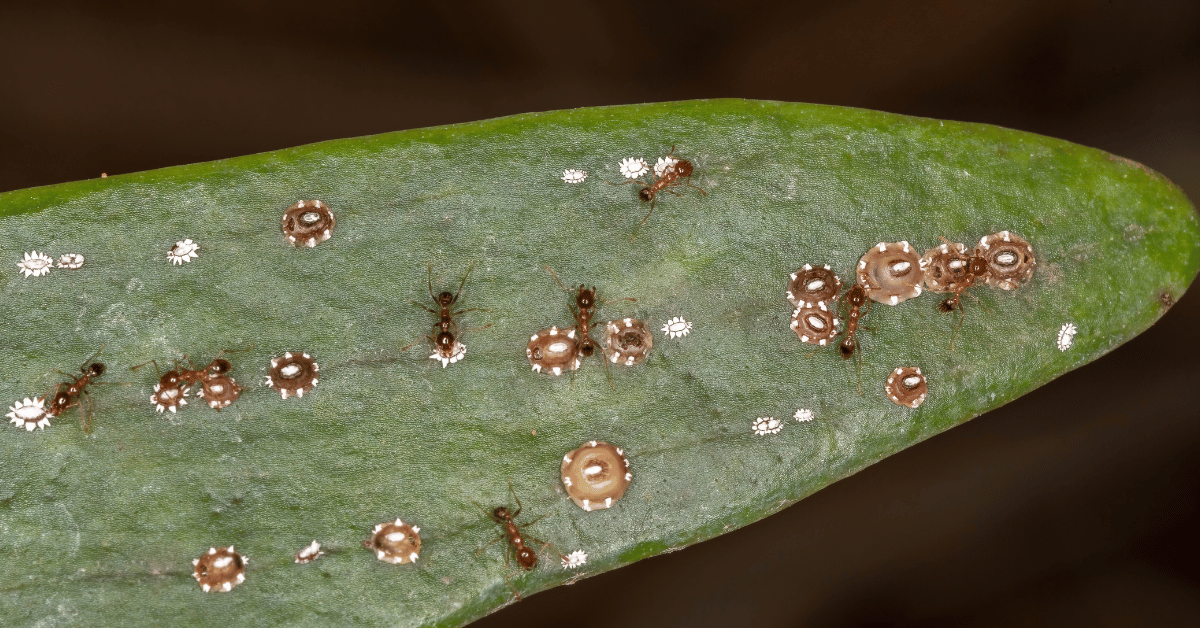Ticks are more than just annoying. They can carry dangerous diseases like Lyme disease and Rocky Mountain spotted fever. If you want to enjoy your yard safely, it's important to keep ticks away.
At Strobert Tree Services, we care about your yard—and your health. We offer tick prevention, tree pruning, removal, and full tree healthcare. Our certified arborists are ready to help.
Here’s how to keep ticks out of your yard using simple and effective steps.
- Keep Your Grass Short
Tall grass is the perfect hiding place for ticks. They love the shade and moisture. Mowing your lawn regularly, especially around the edges and near fences, helps reduce these hiding spots. Stick to a height of about 2–3 inches and don’t forget those hidden areas behind sheds or swing sets.
2.Remove Leaf Litter
If you’ve got piles of leaves sitting around, you’re basically inviting ticks into your yard. They use leaf litter for shelter and humidity. Rake up leaves often, especially in the fall, and clean out flower beds and under shrubs. Bag the debris—don’t compost it if you’re trying to prevent ticks.
3. Create a Dry Border
Ticks don’t like dry, sunny areas. You can block their path by adding a 3-foot gravel or mulch border between the woods and your lawn. This not only keeps them from wandering into your yard but also separates play spaces and patios from tick-prone zones.
4. Prune Trees and Shrubs
Too much shade creates the kind of damp environment ticks love. Prune your trees and trim shrubs to let more sunlight in. Open spaces dry out faster and are less inviting for ticks. If you’re unsure where to start, Strobert Tree Services can help you with safe, expert pruning.
5. Keep Wildlife Away
Animals like deer and mice carry ticks. When they visit your yard, they bring ticks with them. Keep pet food inside, install deer fencing if needed, and store firewood away from your home. Less wildlife traffic means fewer ticks.
6. Protect Play Areas
Kids and pets are most likely to pick up ticks while playing. Keep play equipment in sunny, open areas and away from trees or fence lines. Surround these spots with mulch or gravel to help block ticks from crossing into play zones.
7. Use Tick Tubes or Treatments
Tick tubes are an easy solution—mice take the treated cotton inside, killing ticks without harming other animals. Yard sprays can also help, but it’s best to talk to a professional. Strobert Tree Services offers safe, eco-friendly tick control plans tailored to your yard.
8. Remove Unwanted Trees or Brush
Thick brush and dead trees trap moisture and create shade—exactly what ticks love. Removing these areas reduces your risk. Our team can clear them out and even suggest better, tick-resistant landscaping options.
9. Keep Pets Protected
Pets often bring ticks into the house. Check them daily after they’ve been outside and talk to your vet about tick prevention. Don’t let them run into wooded or unmaintained parts of the yard.
10. Schedule a Yard Health Check
Still wondering how to keep ticks out of your yard? Let our certified arborists walk your property, assess the risk, and build a custom plan just for you. At Strobert Tree Services, we’ve helped families all over the region enjoy safer, healthier outdoor spaces.
Chemical Tick Control: What You Need to Know
If you're dealing with ticks in your yard, chemical tick control may be a practical solution. These treatments work by targeting tick populations directly and reducing their ability to spread.
For more serious infestations, it's best to work with a licensed commercial pesticide applicator. They know how to safely apply the right treatments and can even recommend options like permethrin-impregnated uniforms for those who spend a lot of time outdoors. These professionals may also offer a deer repellent program, which helps reduce one of the main carriers of ticks in suburban areas.
At Strobert Tree Services, we often combine chemical tick control with natural methods like pruning and brush removal. We also offer other services like fire ant control service to keep your entire yard safe and healthy.
Post-Exposure Tick Management
If you’ve been in a tick-prone area—like tall grass, wooded trails, or even your backyard—it’s important to act quickly. The best way to prevent tick-borne illnesses like Lyme disease or Rocky Mountain spotted fever is through daily habits and awareness. Start with a full-body tick check after being outdoors. Use a mirror to check hidden areas like your scalp, behind your knees, and under your arms. Shower within two hours to help wash away any ticks that haven’t attached yet.
If you find an attached tick, don’t panic. Use fine-tipped tweezers or a tick spoon to grab it as close to the skin as possible, then pull it out slowly and steadily. After attached tick removal, disinfect the bite site with alcohol or soap and water. Watch for tick bite reactions like a rash, fever, or muscle aches. In rare cases, ticks can cause tick-induced paralysis, so take symptoms seriously. Consult your doctor or a tick management handbook if you’re unsure.
Doing a daily tick check is your best defense. These small steps can make a big difference in protecting your health and your family’s.
Tick Activity and Habitats
Ticks don’t just appear out of nowhere—they hitch rides on wildlife like deer and mice. These animals play a big role in the Lyme disease cycle and the spread of other tick-related diseases like Rocky Mountain spotted fever and Powassan virus. White-footed mice and other small rodents are especially dangerous because they serve as reproductive hosts for ticks. Young ticks, called nymphs, often feed on these rodents early in life, taking their first blood meal and picking up disease-causing bacteria in the process. Later, the ticks latch onto larger animals like deer or even pets and humans, spreading infection through tick bites.
These ticks, especially deer ticks, thrive in tall grasses, humid and shady spots, and naturalized areas that attract animals. You'll find them near low-hanging shrubs, unmown areas, and thick low-lying ground covers. When nymph activity is high, usually in warmer months, your risk of exposure increases. To reduce tick populations, it’s important to manage wildlife around your yard. Keep grass short, remove food sources, and clear brush to make your property less inviting to animals and the ticks they carry. This helps break the disease cycle and keeps your yard safer for everyone.
Why Choose Strobert Tree Services?
If you're wondering how to keep ticks out of your yard, you're not alone. At Strobert Tree Services, we do more than just trim trees—we help protect your yard and your family. Our certified arborists understand what it takes to create a healthy, safe outdoor space. We offer expert pruning, safe tree removal, and full tree healthcare services. Our tick prevention treatments are eco-friendly and effective, reducing the risk of tick bites without harming the environment. As local professionals, we know the unique challenges of our region and are committed to keeping your yard a place where you can relax, play, and enjoy nature—without worrying about ticks. Don’t let ticks ruin your yard. Let us help you take control.
Let’s Make Your Yard Safe Again
Don’t let ticks take over your space. Call the experts at Strobert Tree Services.
We offer tick prevention, pruning, tree removal, and full yard care by certified arborists. Let us help you create a healthy, beautiful, and tick-free yard.











